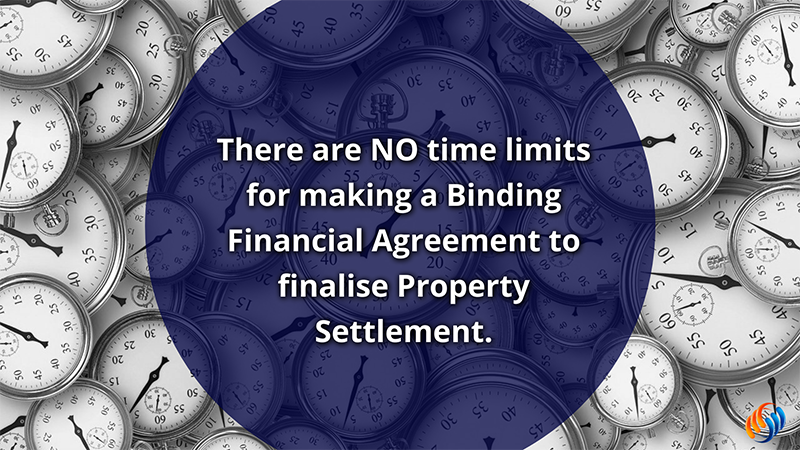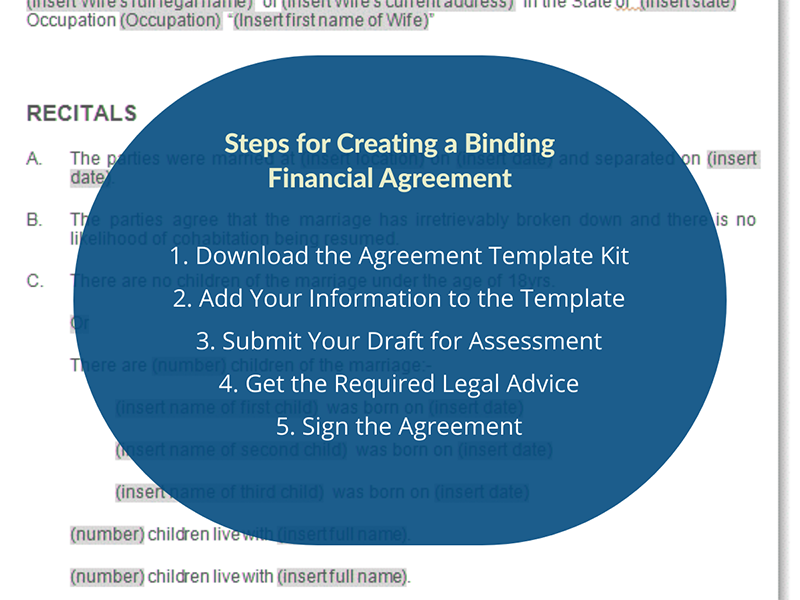Navigating property settlements after your separation can be complex, and knowing the time limits is crucial. Understanding these timelines and acting quickly is essential to protect your interests and ensure a smooth process. This guide explains the details of property settlement after separation time limits, giving you the clarity and guidance you need so that you don’t miss deadlines which could seriously affect your entitlements.
Understanding Property Settlement
Definition
Property settlement in the context of divorce or separation refers to the legal process of dividing assets and liabilities between separating couples. This includes real estate, investments, vehicles, and debts – see a more complete list of financial property here. Property settlement is crucial as it aims to achieve a fair distribution of assets acquired during the relationship, ensuring both parties receive an equitable share based on their contributions.
Importance
Property settlement brings closure by resolving financial entanglements. It helps couples avoid costly legal battles and emotional turmoil associated with unresolved financial matters. A structured approach to asset division promotes a smoother transition into post-separation life.
Time Limits for Property Settlement After Separation
Understanding time limits for property settlement after separation is crucial to protect your rights. Here are the key deadlines:
Court Orders
-
- Parenting issues: No time limit; you can apply anytime.
- Financial or property matters:
- Married couples: Apply within one year of divorce.
- De facto couples: Apply within two years of separation.
- Special leave is required to apply out of time, which may not be granted without a very good reason.
Consent Orders
-
- Same time limits as court orders apply. Special leave is required for late applications.
Binding Financial Agreements
-
- No time limits. You can make a financial agreement at any time before, during, or after your relationship.
Four Ways to Finalise Property Settlement
You can finalise finances and property division at any time after separation. For married couples, this can be done before or after you apply for divorce, meaning there is no 12-month time period to formalise a property settlement. Here are four options to finalise the division of your assets and liabilities:
- Private Agreement (Written or Verbal)
You and your partner can agree on how to divide your assets and shake on it. However, verbal agreements are not legally binding in court, and one party can later apply for a property settlement order. If your assets are substantial, consider a more secure, legally binding method.
- Binding Financial Agreement
Recognised by the Family Law Act as a legally binding alternative to court action, a financial agreement allows you to formalise your property settlement privately at any time. You can make a financial agreement if you are separated or divorced.
- Consent Orders Through the Family Court
If you agree on how to divide your assets and liabilities, you can submit an application for consent orders to the court. The court will review and, if satisfied, consent to your agreement. Full financial disclosure is required. This method can also include parenting arrangements.
- Court Proceedings
As a last resort, if you cannot reach an agreement, you can apply to the court for orders. The court will make a decision on your property and family issues. This process is expensive, time-consuming, and stressful. You must attempt mediation before initiating court action.

Difference Between Property Settlement and Divorce
While property settlement and divorce are related, they are distinct legal processes.
Divorce: This is the legal dissolution of a marriage. You can apply for a divorce after you have been separated for at least 12 months, with no reasonable likelihood of resuming married life, including being “separated under the one roof”. The Family Court provides a free online Divorce Kit, which includes an Application for Divorce. This application needs to be completed and lodged with the Family Court. A filing fee applies at the time you lodge your application, which can be done online, in person, or by post. You can apply either solely or jointly. If applying solely, you must serve a copy of the Divorce Application on your spouse. The Court will notify you of a hearing date, but you generally do not need to attend unless there are children or other complicating factors.
Property Settlement: This involves the division of assets and liabilities between separating couples. Unlike divorce, property settlement can occur before or after the divorce is finalised. It is crucial to address property settlement promptly to avoid complications and ensure a fair distribution of assets.
Key Takeaways
- Act Promptly: Time limits are crucial in property settlement after separation, so take immediate steps to initiate the process.
- Stay Informed: Familiarise yourself with your options for property division.
- Document Everything: Keep detailed records of assets, finances, and agreements to facilitate a smooth settlement process.
- Prioritise Communication: Open and honest communication with your ex-partner can help in reaching mutually beneficial agreements and expediting the settlement.
- Consider Superannuation: Ensure superannuation is included in the settlement discussions.
- An Amicable Arrangement Is the Most Cost-Effective: Stay in control of the settlement process with a Binding Financial Agreement and reduce the need for costly legal intervention.
- Seek Legal Advice: If you are unable to reach an amicable arrangement, consider mediation or legal advice to resolve the conflict.
Frequently Asked Questions (FAQs)
1. What is the purpose of a property settlement? Property settlement aims to fairly divide assets and liabilities between separating couples, ensuring both parties receive an equitable share based on their contributions.
2. What are consent orders? Consent orders are legally binding agreements approved by the court, ensuring that the proposed property division is fair and equitable.
3. When should I consider court proceedings? Court proceedings should be considered only as a last resort when couples cannot reach an agreement and after attempting mediation.
4. What is a binding financial agreement? A binding financial agreement is a legally binding document that outlines the division of property and financial matters, avoiding the need for court intervention.
5. Are there time limits for making a property settlement? Yes, there are specific time limits for court orders and consent orders. Married couples must apply within one year of divorce, and de facto couples within two years of separation. There are no time limits for binding financial agreements.
6. How do I apply for a divorce? You can apply for a divorce after being separated for at least 12 months. The Family Court provides a free online Divorce Kit, which includes an Application for Divorce. This can be lodged online, in person, or by post. A filing fee applies, and you may apply solely or jointly. If applying solely, you must serve a copy of the application on your spouse.



